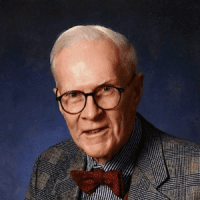September brought to Washington its usual mixture of beastly summer heat and occasional lovely autumn days, the latter of which October then delivered in greater quantity. Washingtonians remark ruefully that the spring can easily be missed if you glance away, but boast that the fall is universally conceded to be DC’s finest season. There was also sorrowful news of the death of one of the AHA’s past presidents and great historians, John King Fairbank, on September 14. We understand that Harvard will be establishing a memorial fund in his name to foster the work of younger scholars, whose care was one of his major concerns. We will report to our members the details as we learn them.
On Saturday September 27 the Committee on Minority Historians held its fall meeting in Washington. Chair Joseph Harris (Howard) moved the committee along briskly through a full agenda. The development of a short pamphlet series on minorities to be called “Diversity within America” was decided on and an author commissioned to draft the first pamphlet on teaching Native American history. Antonio Rios-Bustamante, University of Arizona, was named co-editor of the pamphlet series—a second co-editor will be named shortly.
A number of topics on minority history and historians were discussed for future annual meeting programs; a proposal to conduct a survey of minority historians (to result in a directory) was reported on; ideas to help the AHA’s Committee on Committees and Nominating Committee identify minority historians from our membership were summarized; and the design of a book prize on the history of the African diaspora was agreed on to be submitted to the Research Division for endorsement.
Early in October, AHA representatives attended the dedication ceremonies of the German Historical Institute in Washington. Established several years ago, the Institute with Federal Republic and Volkswagen Foundation funding, aids scholars of German and American history from both countries, dedicated its handsome headquarters near Dupont Circle. The Institute decided also to name its reading room for the late Felix Gilbert, eminent historian emigré in the 1930s and the first recipient of the AHA’s Award for Scholarly Distinction. AHA representatives extended greetings and best wishes, noting the German historians from von Ranke to Bosl who have been AHA honorary members.
From time to time, Perspectives has informed members about the AHA’s major bibliographic project, preparing a third edition of the Guide to Historical Literature. On October 4–5 General Editor Mary Beth Norton and Associate Editor Pamela Gerardi met with a group of the section editors, who had not been able to attend the first section editors’ meeting in May. We are happy to report that the project is proceeding apace, with section editors focusing on the massive job of selection that confronts them and the over hundred contributors and annotators already chosen to assist them.
That same weekend, headquarters staff also participated in a planning meeting convened by the Syracuse University Center for Instructional Development as part of its “Redefining Scholarly Work” project, funded by the Fund for the Improvement for Postsecondary Education and the Lily Endowment. The AHA’s role will be to organize one of the series of disciplinary task forces charged with evaluating current definitions of research and teaching and developing recommendations or guidelines that will address the need for greater attention to teaching in tenure and promotion decisions at the college and university level. Future issues of this newsletter will report on the task force’s work.

